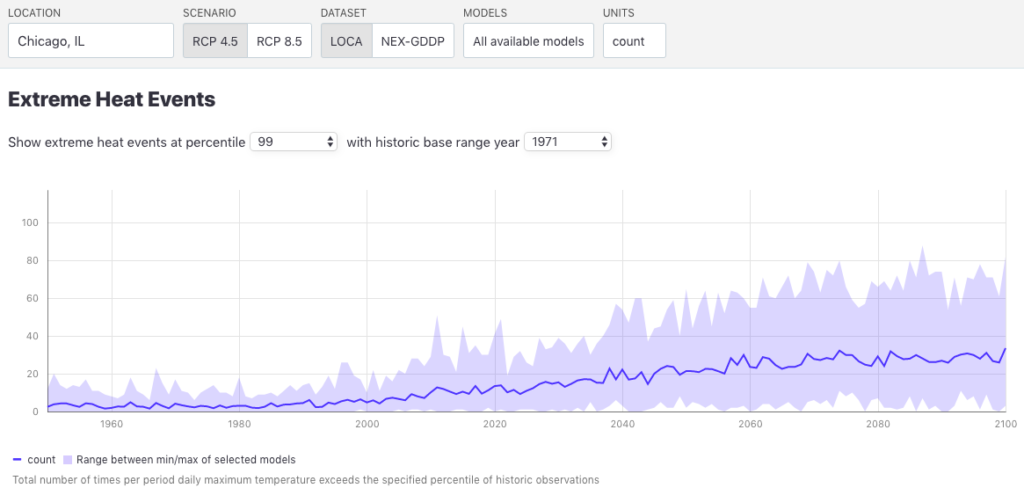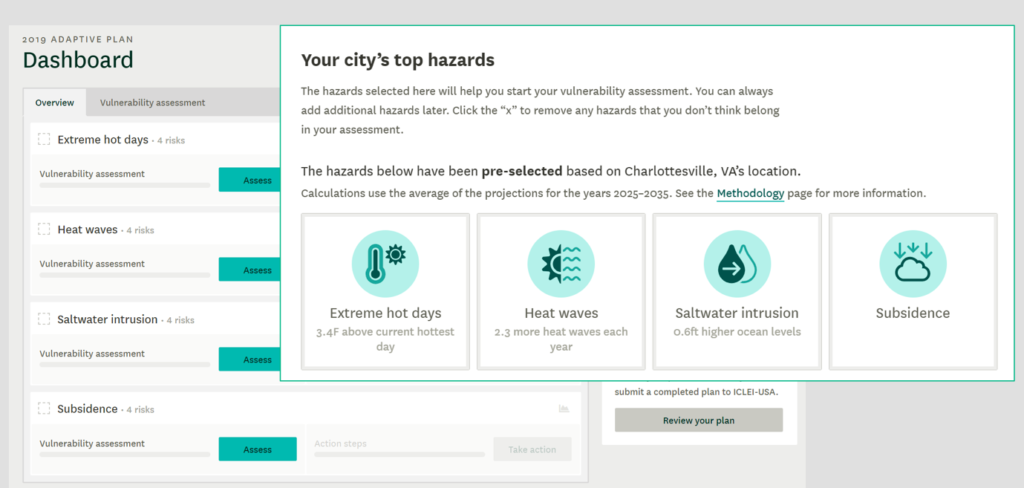Last month the UN Intergovernmental Panel on Climate Change (IPCC) released a sobering report on the climate catastrophes waiting for us if we do not act drastically to reduce carbon emissions in the next 12 years.
The world took notice, to say the least. Activists, policymakers, thought leaders, and citizens are taking action to get congress to act. The report suggests that drastic policy changes are needed to mitigate the harm caused by increased warming over the next several decades.
But this report also reminded us of what we already know: climate change is real.

Climate change-related extreme weather events caused $300 billion worth of damage in the US in 2017 alone. Even if we radically overhaul our energy policies to reduce any future rises in temperature, the current effects of global warming will continue.
Cities have the most at risk and the most to lose in a projected future of increasing climate change related weather events. If anything, this report was a great reminder that cities have to act NOW when it comes to climate change adaptation planning. The question is no longer if your city will experience the effects of a changing climate, but when, how often, and how to plan for it.
Announcing Temperate
The forecast of climate change related weather events is increasingly dire, and there is an urgent need for cities to plan for adaptation. However, cities often lack the data to develop these adaptation plans. In 2014, Azavea was awarded a grant from the US Department of Energy’s Small Business Innovation Research (SBIR) program (DE-SC0011303) to work on this problem.
Every five years, the IPCC releases 100-year climate change forecasts developed by dozens of research institutions around the world. While carried out by many research organizations, all of the forecast models are released in the same data structure and format with results generated under different atmospheric carbon scenarios. The resulting data include terabytes of data and while it is useful and the IPCC accompanies the data with interpretive reports, it is not actionable at the local level. The Dept. of Energy was interested in ideas from small businesses for making the IPCC climate forecasts more useful at the level of local decision makers. Our proposal focused on the combination of user experience design and the ability to generate actionable metrics by leveraging our big data processing library, GeoTrellis. We were successful at winning a Phase I grant and then, a year later, a larger Phase II implementation grant. We also received support from a research grant through Amazon Web Services.
As the culmination of this effort, Azavea has released Temperate: a custom climate change adaptation planning app for small and medium-sized communities. Along the way, we developed a Climate Data API and a data visualization lab, both of which were building blocks for Temperate.
What is it?
Temperate is a user-friendly climate adaptation planning app that guides users through the process of creating a plan for their city from start to finish. It aggregates data and explores potential risks and hazards particular to a city. Temperate then creates a vulnerability plan to identify high priorities. Finally, it incorporates proven action plans from over 40 U.S. cities to recommend relevant actions for the user’s city. Temperate has a beautiful, intuitive user interface that anyone can use. And it gives users access to climate adaptation planning experts at ICLEI-USA to help develop custom plans for their city.
“The Temperate interface brings climate data and community assets together in a way that focuses attention on the highest needs and broadens their horizons for solutions from their peers at the same time” – Mike Steinhoff, Program Director ICLEI-USA

Who is it for?
We get it. Climate change is terrifying. The effects of it seem too big. Planning for it feels daunting. Doing so on a limited budget with no dedicated staff? Might as well call it quits.
But you can’t! This is something all cities MUST do. And we’ve designed this app with you in mind. So far we’ve helped –
- Small to midsize localities with few resources devoted to climate change adaptation planning
- Advocates who are thinking about climate planning issues in their city and want tools and hard data to help them make the case for adaptation to policy makers
- Local governments who want to take action and prepare their localities for climate change inevitabilities
And we want to help you too! It’s simple to start and requires no background knowledge. Temperate has an easy to use interface. It’s built on reliable science. And it helps you collaborate with other cities figuring it out too.
“When our community started to investigate options for developing a Climate Vulnerability Assessment we weren’t sure how to tackle a planning project with such a wide scope and so many unknowns to plan for. The Temperate Tool fit our needs exactly. It has allowed us to focus in on the hazards and community systems at risk particular to our geography. We have been very pleased with how intuitive the tool is to use while being extremely comprehensive and would strongly recommend it to other communities.”– Carol Davis, Sustainability Manager, Town of Blacksburg, Virginia
Try Temperate Today
Climate change is big and daunting. But that can’t be an excuse to not act. Let us help you get started. Test out the full Temperate software for 15 days by signing up for our free trial. Explore our pricing packages and see which level of functionality is right for your city. For an in-depth dive on how Temperate works, check out our free webinar we produced with ICLEI.
If you don’t see what you need, if you have more questions, or if you just want to rant and rage about the state of the world together, reach out. We’re out of excuses. Let’s get to work.

